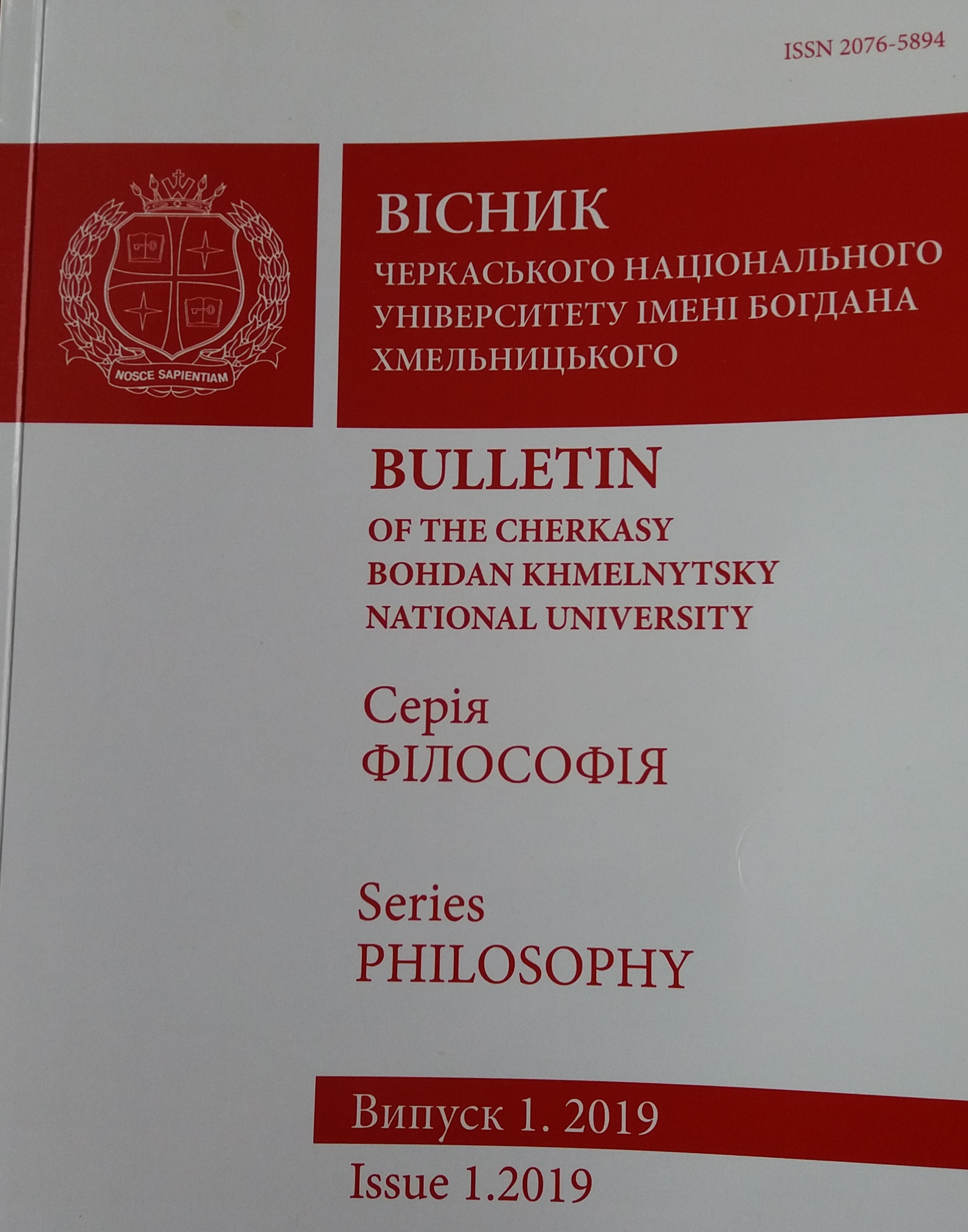REASONING OF DECISION MAKING OR SIGN BACKGROUND OF PRACTICAL ARGUMENT
##plugins.themes.bootstrap3.article.main##
Анотація
Summary. Introduction. The article focuses on reasoning strategies of decision making in the social context. The digital age changes familiar sign systems adjusting our life. Text occupying a special place among sign systems is a result of meanings and is modelled as an instance of this system.
The purpose of the paper is to consider the sign background of reasoning strategies in the social context, their influence on forming the situation of decision making. Having made a decision, we start to implement it; however, we are interested in rather how the decision was actually made than how the decision was or had to be made, that is what influenced the decision, why we did one way or another.
Methods. The classic philosophical methods, viz. structural and comparative analysis, hermeneutics, were used to study the issue.
Results. Today’s sign systems are a combination of semantic and semiotic resources; they consider social practices, in which they can be implemented; their compulsory component is the interaction of the constructed knowledge and reality, the articulation of event models, the conceptualization of “semiotic product”. Therefore, words and grammar constructions are semantic potentials used by people to show their motivated view of the world.
Originality. Some commercials of the Ukrainian TV are considered as an illustration of sign background of practical argumentation.
Conclusion. The proposed variant of considering a language as a means of social construction but not as a neutral means of communication allows analyzing the process of the text reconstruction through a language and an image. A language forms and is formed by a society. Thus, the created models of the world are a scenario or consecutive chain of the text and behaviour including a definite set of ideas and variants of their implementation. Visual structures involved in the text create multimodal system and concept. Analyzing social subjects, we can propose both normative and descriptive system of a definite communicative choice. A practical argument implemented in the generalized social situations includes some planes of manipulation and persuasion. The latter always concerns with any subject area and is associated with the assessment of some judgment as acceptable. The motivated textual choice shows understanding of today’s sign situation and forms new semiotic systems, as well as shows the ways and variants to persuade the audience.
##plugins.themes.bootstrap3.article.details##
Посилання
Halliday, M. A. K. (1985). An Introduction to Functional Grammar. L.: Arnold
Caldas-Coulthard, C. R. Reporting Speech in narrative Discourse: Stylistic and Ideological Implications. Retrieved from file:///C:/Users/Samsung/Documents/8759-26205-1-PB.PDF
Vannini, P. Social Semiotics and Fieldwork: Method and Analytics. Retrieved from http://www.academia.edu/1534032/Social_Semiotics_and_Fieldwork_Method_and_Analytics
Leeuwen, T. van. Introducing Social Semiotics. Retrieved from https://pdfs.semanticscholar.org/aca7/c8ffa23c38b05faede391273a4130fc28b4a.pdf
Iliin, M. V., Fomin, I. V. (2018). Social semiotics: Study of discourses and practices of social interaction. Tropy metoda (Paths of method). Retrieved from https://cyberleninka.ru/article/v/sotsialnaya-semiotika-izuchenie-diskursov-i-praktik-sotsialnogo-vzaimodeystviya (in Russ.).
Gavrilova, M. V. Social semiotics: experience of systematizing of terminological system. Retrieved from https://cyberleninka.ru/article/v/sotsialnaya-semiotika-opyt-sistematizatsii-terminologicheskoy-sistemy (in Russ.)
Bryushinkin, V. N. (2009). Cognitive approach to argumentation. RATIO.ru, 2, 2-22 (in Russ.)
Alekseev, A. Р. (2013). Theory of argumentation in the era of manipulation. Vestnik MGU. Seria 7. Filosofia (Vestnik of MSU. Series 7. Philosophy), 5, 67-77 (in Russ.)
Abelson, R. (1987). The structure of beliefs. Language and modeling of social interaction: Translations, 317-380. Moscow: Progress (in Russ.)
Blakar, R. M. (1987). Language as an instrument of social power. Language and modeling of social interaction: Translations, 88-125. Moscow: Progress (in Russ.)

